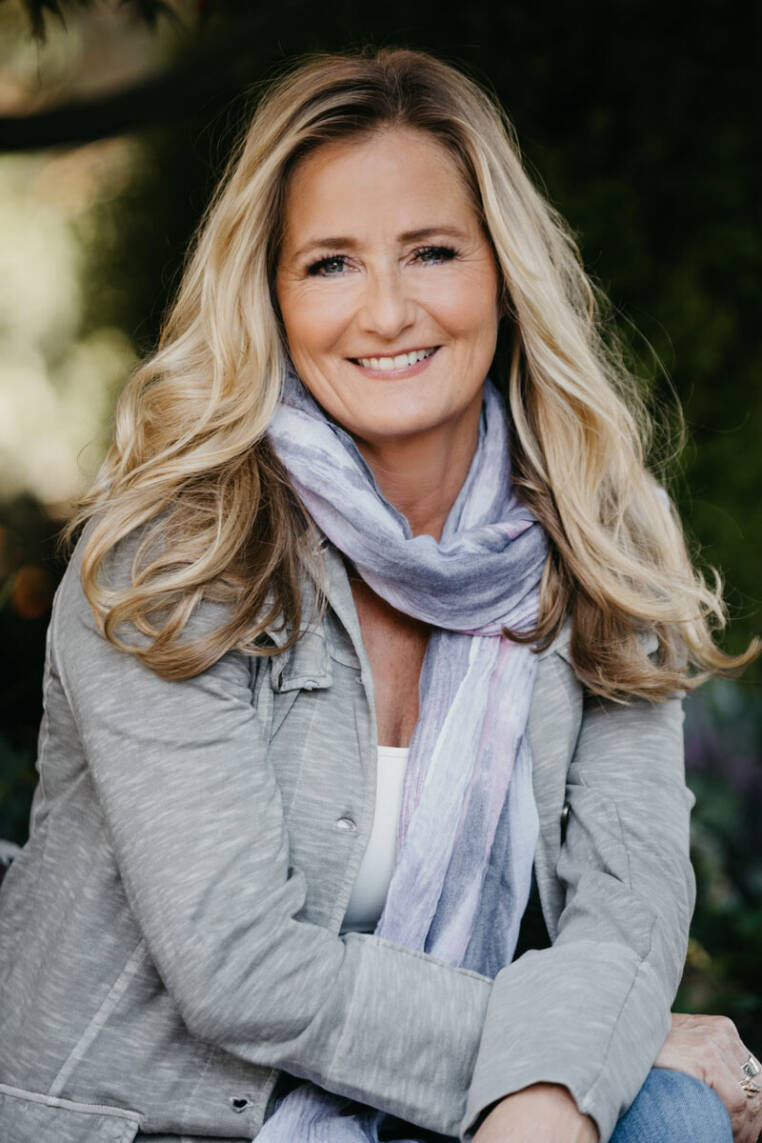
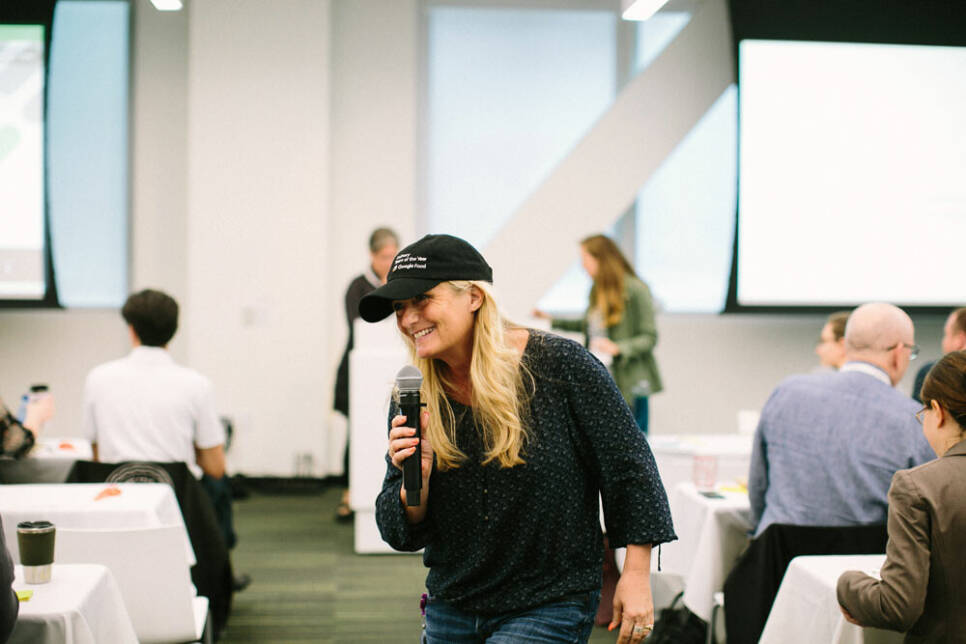
Make everyone counts
“We see the need for a different kind of leadership within the food and hospitality industry as well. People are now leaving the industry rapidly. Even people after long careers in hospitality are now deciding to change their job and go into sales or logistics for instance. This is a major risk for our food service industry. Within our organization we are really trying to support our teams, so that they can develop new skills, because we are geared towards growth. We strive for that feeling of belonging and a sense of pride in the work."
Essential leadership skills
“At Google, in our leadership development, we are focussing heavily on change management skills. In the last few years we’ve been talking a lot about VUCA. The concept of our world being Volatile, Uncertain, Complex and Ambiguous, all at the same time. We help our leaders develop skills to be able to navigate their teams through those stormy seas. So that they are able to respond to the complexity of delivering services in an ever changing environment that is being created and reshaped as we go along.”
“We have been super focussed on adaptive leadership. Leaders now need to try and keep the high level view. By getting input from a broad group of people – experts within and outside the organisation – you are better able to work your way through that complexity and determine a next step. I think that the old days of leaders jumping in and solving short term problems is not effective anymore. Because you quickly lose sight of what you're solving. Instead, it is crucial to empower your teams to try and solve those complex issues from their field of expertise and bring it all together. It is far more effective to provide your team with a safety net, an environment where they can make mistakes and learn from it, rather than you trying to solve things yourself.”
Linda with her daughter Tanna
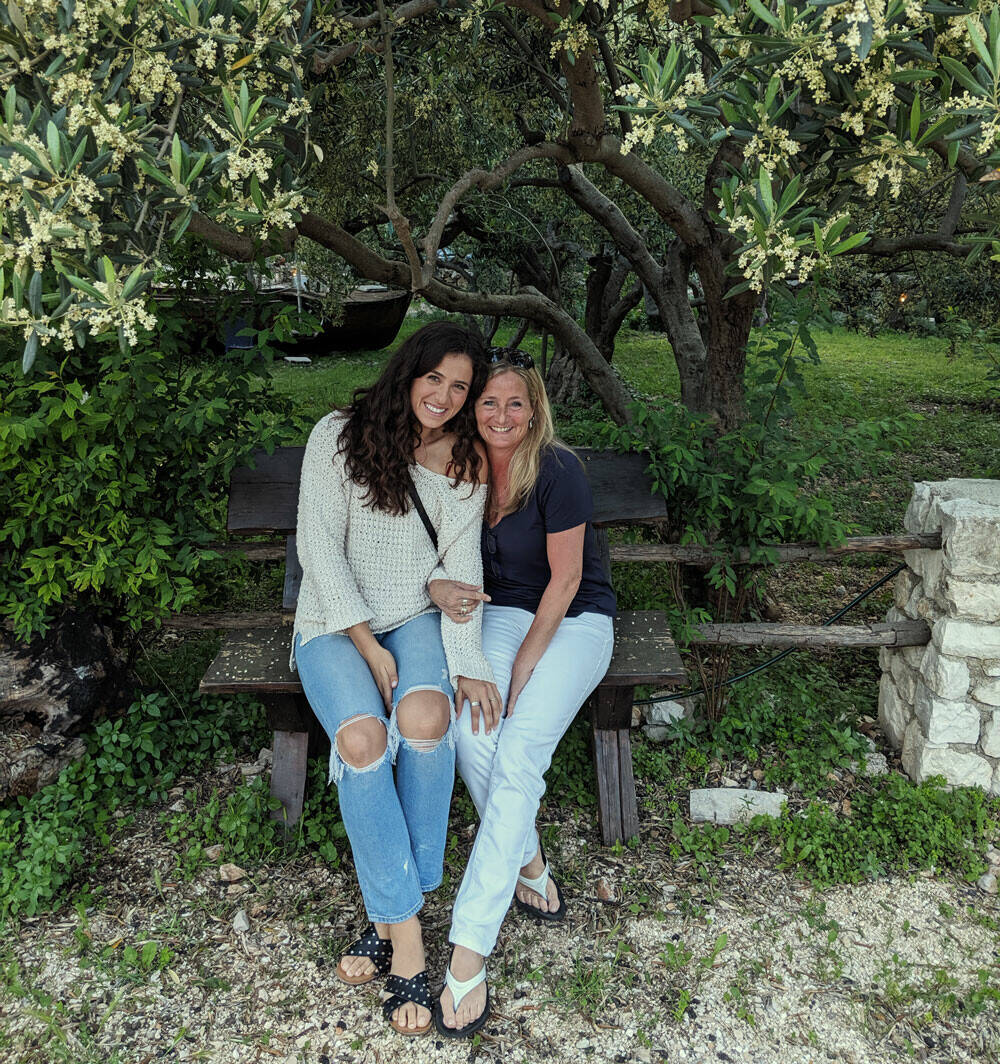
Leading examples
Setting an example for young female leaders herself, Linda has seen many versions of both strong and poor leadership. “Over the past 35 years I worked with a lot of different people. To me, within Google, Michiel Bakker (Vice President, Global Workplace Programs at Google) has been inspiring. He sets a strong vision and is a great mentor that has really succeeded in creating an environment of trust and psychological safety.”
Being a mom of three grown-up daughters, inspiration also comes from within my own family. “Over the last couple of years I really have been inspired by my middle daughter Tanna. She is this wonderful kind woman, truly interested in other people and a great communicator. As we are now so much on our screens instead of being together, being able to connect with people from a distance has become super important. When you are busy, it can be easy to get distracted or tempting to start multi-tasking with something, but Tanna always stays really focussed. That leads to deeper understanding and connection, which has proven to be an essential leadership skill. So that is what I’ve been trying to do much better myself in the last couple of years. It has been great for me to watch my daughter being able to develop that skill and to learn it from her.”
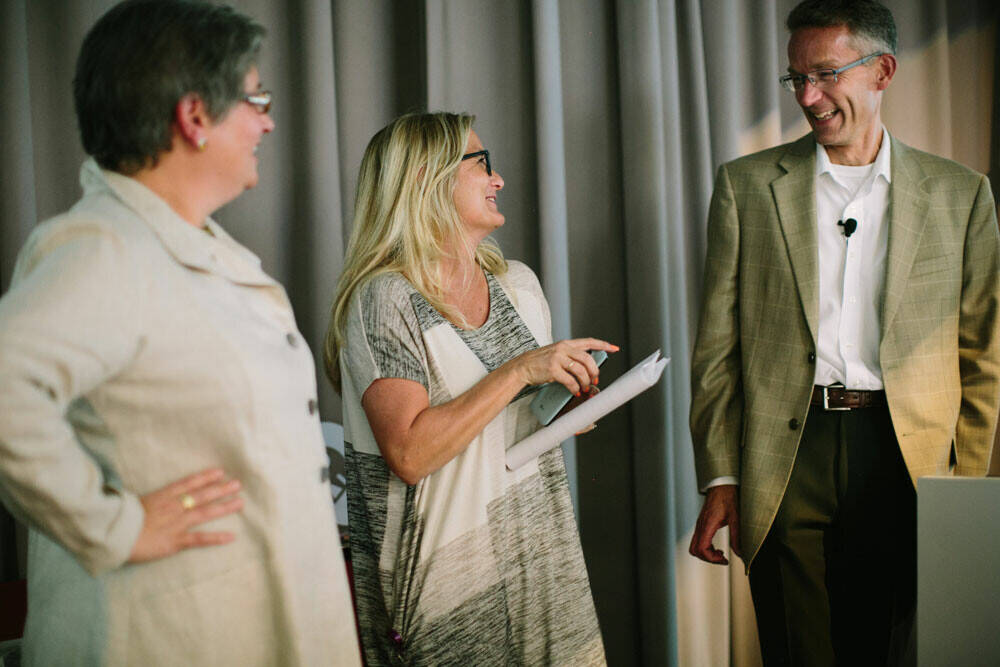
WHAT THE WORLD NEEDS NOW
According to Linda, what the world needs now are leaders that…
Have a strong vision and focus on explaining ‘the why’
Show empathy and invest in deep personal connections
Are communicative and encourage radical candor
Are authentic
Create an inclusive environment where people feel valued
Build trust and provide psychological safety for their employees
Empower their teams rather than micromanaging
Are adaptive to changing circumstances and help their teams cope with a VUCA* world
Foster a working environment where mistakes are seen as learning opportunities
* VUCA = acronym, short for: Volatility, Uncertainty, Complexity and Ambiguity
Understanding the why
“Especially now with so much happening in the workforce and the workplace, teams really need to understand the why of what they are doing. They need to understand the vision on where you are heading as a team or company. Even if at times where things are changing so rapidly that sometimes we struggle to see what our next step should be. And that’s okay. But you need to allow your teams to move with you through that. So in these volatile times providing a strong why for your team, does not need to be a five-year-master plan. It can just be the why for the next 90 days or so. And then we move further from there.”
Radical candor
“I’ve always operated under the concept of radical candor. The idea is to create strong caring relationships, while at the same time being very candid in your communication. When done right this is beneficial for both the team performance and the wellbeing of the individual team members. You can only achieve this from a place of mutual trust, not from a place of strong competition. Within my team, I have worked really hard over the years to develop that culture. I focus on providing my team guiding directions, helpful feedback and praise because I truly care to see them succeed as well as the broader business success. It creates a strong safety net for every individual in the team. If you develop a caring environment where people are willing to stand up for each other, it is easier to be very forthright in your communication because everyone knows that you just want them to succeed.”
Inclusive leadership
“We live in challenging times. There is so much going on in the world at large and in our working environments right now. That asks for strong leadership. I believe that in this ever changing world, leaders need to demonstrate a strong sense of empathy, in an authentic way – now even more than in the past. As leaders we need to inspire and empower our teams with ownership. We need to guide our teams towards a strong commitment of doing the right thing and showing up for each other.” Linda works hard for her own teams, to offer them a sense of stability. “With so much happening in our lives – personally and professionally – there is nothing more important than offering an inclusive environment that fosters a culture of trust and strong psychological safety. I’m convinced that you will not succeed – as a leader or as a company – if you don’t have that as your top priority.”
CV
Linda Femling is Google’s Director of Food Programs for Latin America and North America. She is part of the management team at Google and has been working there for over 14 years. Linda leads a team of Food Program Managers and closely partners with numerous vendor partners that provide food services in eight countries. She is also the operational lead for the Food program's sustainability programmatic efforts and has helped lead the initiative to reduce plastics and transition to more sustainable alternatives. The ultimate goal she is tackling with the team is to eliminate single-use plastics or make them fully circular within Food at Google spaces by 2030. In addition to this, Linda is a certified business coach and spends a lot of time working with young female leaders at Google.
“In these volatile times providing a strong ‘why’ for your team does not need to be a five-year-master plan. Sometimes it can just be the ‘why’ for the next 90 days or so.”
Moniek de Jongh Linda Femling Xiao Er Kong
Linda Femling is Director of Food Programs (The Americas) at Google. Working at a fast-growing company like Google for over 14 years, Linda has seen how the world has unfolded to a more volatile, uncertain, complex and ambiguous place, than ever before and how that requires clear, innovative and collaborative strategies. We spoke with Linda about the kind of leadership the world needs now.
Future-proof leadership should be inclusive, empathic, candid and authentic
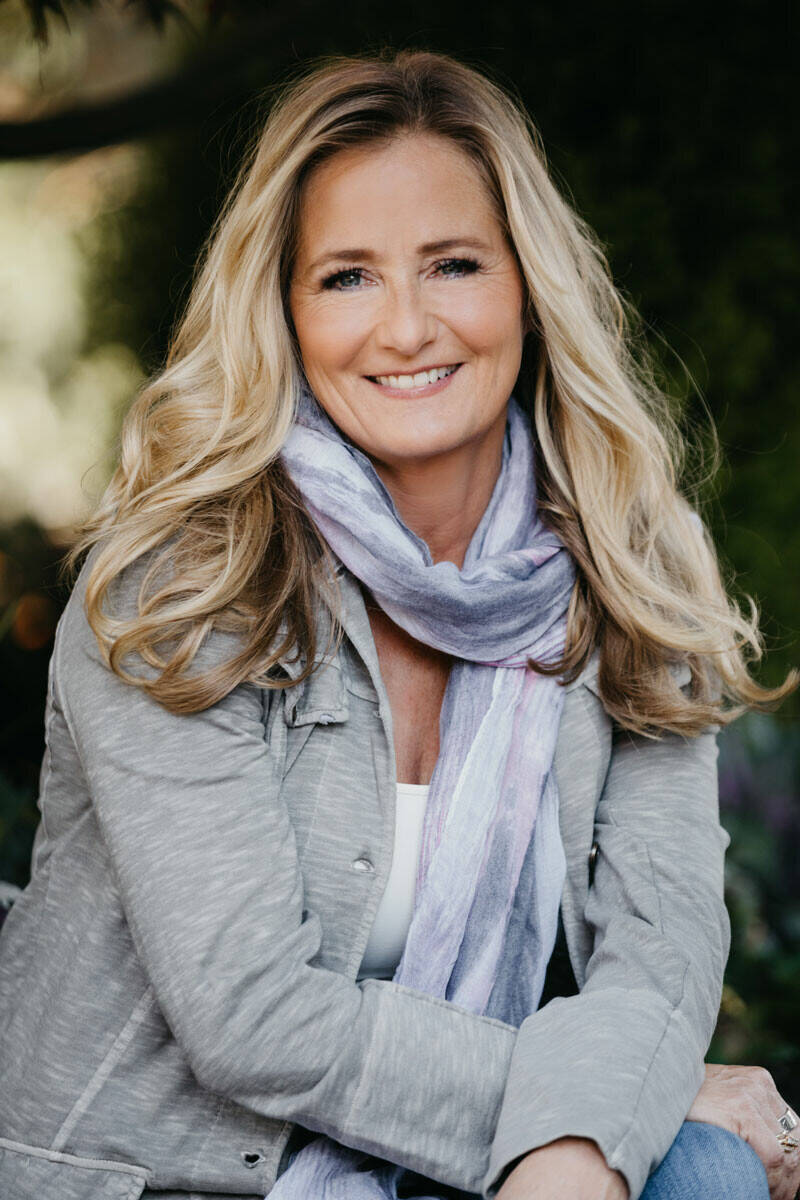
7 min






interview









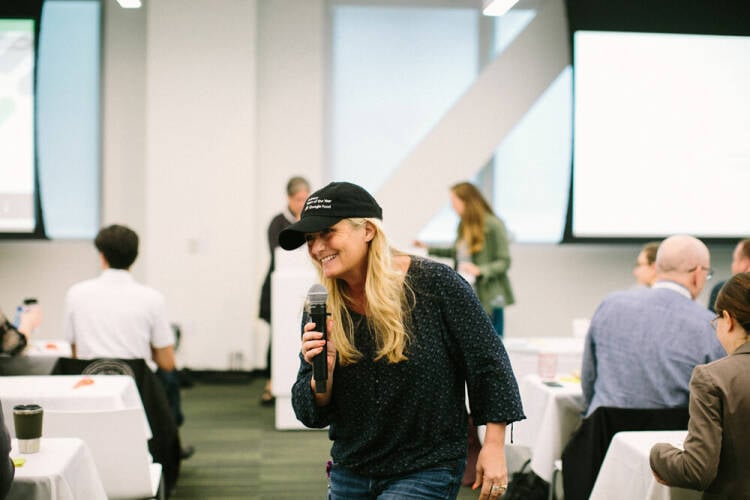
Make everyone counts
“We see the need for a different kind of leadership within the food and hospitality industry as well. People are now leaving the industry rapidly. Even people after long careers in hospitality are now deciding to change their job and go into sales or logistics for instance. This is a major risk for our food service industry. Within our organization we are really trying to support our teams, so that they can develop new skills, because we are geared towards growth. We strive for that feeling of belonging and a sense of pride in the work."
Essential leadership skills
“At Google, in our leadership development, we are focussing heavily on change management skills. In the last few years we’ve been talking a lot about VUCA. The concept of our world being Volatile, Uncertain, Complex and Ambiguous, all at the same time. We help our leaders develop skills to be able to navigate their teams through those stormy seas. So that they are able to respond to the complexity of delivering services in an ever changing environment that is being created and reshaped as we go along.”
“We have been super focussed on adaptive leadership. Leaders now need to try and keep the high level view. By getting input from a broad group of people – experts within and outside the organisation – you are better able to work your way through that complexity and determine a next step. I think that the old days of leaders jumping in and solving short term problems is not effective anymore. Because you quickly lose sight of what you're solving. Instead, it is crucial to empower your teams to try and solve those complex issues from their field of expertise and bring it all together. It is far more effective to provide your team with a safety net, an environment where they can make mistakes and learn from it, rather than you trying to solve things yourself.”
Linda with her daughter Tanna
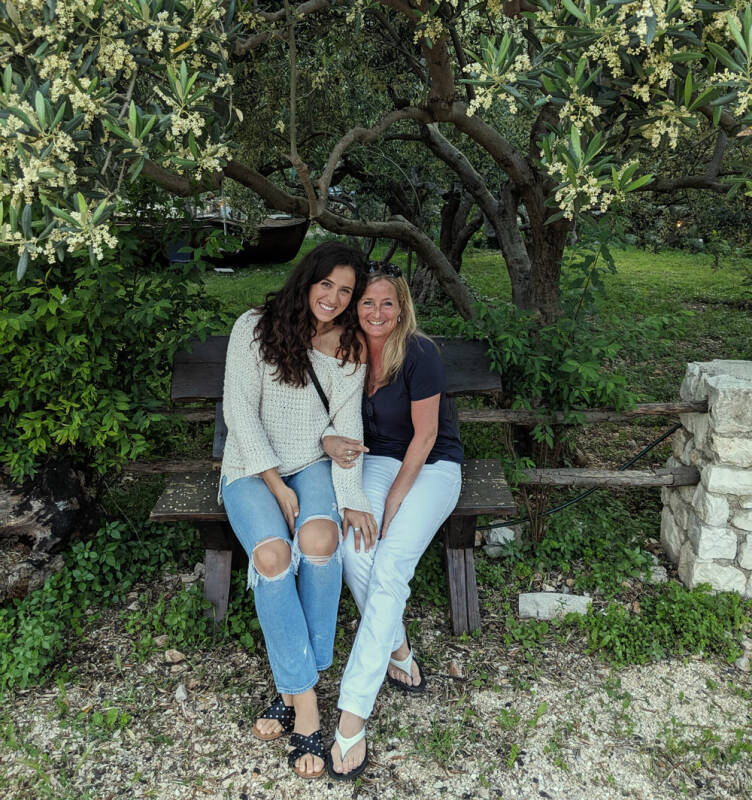
Leading examples
Setting an example for young female leaders herself, Linda has seen many versions of both strong and poor leadership. “Over the past 35 years I worked with a lot of different people. To me, within Google, Michiel Bakker (Vice President, Global Workplace Programs at Google) has been inspiring. He sets a strong vision and is a great mentor that has really succeeded in creating an environment of trust and psychological safety.”
Being a mom of three grown-up daughters, inspiration also comes from within my own family. “Over the last couple of years I really have been inspired by my middle daughter Tanna. She is this wonderful kind woman, truly interested in other people and a great communicator. As we are now so much on our screens instead of being together, being able to connect with people from a distance has become super important. When you are busy, it can be easy to get distracted or tempting to start multi-tasking with something, but Tanna always stays really focussed. That leads to deeper understanding and connection, which has proven to be an essential leadership skill. So that is what I’ve been trying to do much better myself in the last couple of years. It has been great for me to watch my daughter being able to develop that skill and to learn it from her.”
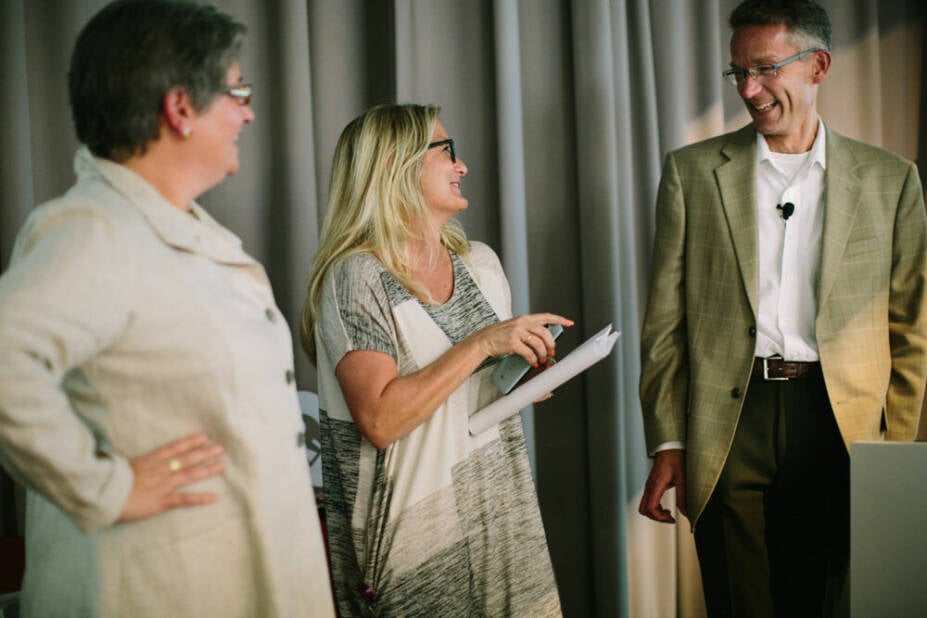
WHAT THE WORLD NEEDS NOW
According to Linda, what the world needs now are leaders that…
Have a strong vision and focus on explaining ‘the why’
Show empathy and invest in deep personal connections
Are communicative and encourage radical candor
Are authentic
Create an inclusive environment where people feel valued
Build trust and provide psychological safety for their employees
Empower their teams rather than micromanaging
Are adaptive to changing circumstances and help their teams cope with a VUCA* world
Foster a working environment where mistakes are seen as learning opportunities
* VUCA = acronym, short for: Volatility, Uncertainty, Complexity and Ambiguity
Understanding the why
“Especially now with so much happening in the workforce and the workplace, teams really need to understand the why of what they are doing. They need to understand the vision on where you are heading as a team or company. Even if at times where things are changing so rapidly that sometimes we struggle to see what our next step should be. And that’s okay. But you need to allow your teams to move with you through that. So in these volatile times providing a strong why for your team, does not need to be a five-year-master plan. It can just be the why for the next 90 days or so. And then we move further from there.”
Radical candor
“I’ve always operated under the concept of radical candor. The idea is to create strong caring relationships, while at the same time being very candid in your communication. When done right this is beneficial for both the team performance and the wellbeing of the individual team members. You can only achieve this from a place of mutual trust, not from a place of strong competition. Within my team, I have worked really hard over the years to develop that culture. I focus on providing my team guiding directions, helpful feedback and praise because I truly care to see them succeed as well as the broader business success. It creates a strong safety net for every individual in the team. If you develop a caring environment where people are willing to stand up for each other, it is easier to be very forthright in your communication because everyone knows that you just want them to succeed.”
Inclusive leadership
“We live in challenging times. There is so much going on in the world at large and in our working environments right now. That asks for strong leadership. I believe that in this ever changing world, leaders need to demonstrate a strong sense of empathy, in an authentic way – now even more than in the past. As leaders we need to inspire and empower our teams with ownership. We need to guide our teams towards a strong commitment of doing the right thing and showing up for each other.” Linda works hard for her own teams, to offer them a sense of stability. “With so much happening in our lives – personally and professionally – there is nothing more important than offering an inclusive environment that fosters a culture of trust and strong psychological safety. I’m convinced that you will not succeed – as a leader or as a company – if you don’t have that as your top priority.”
CV
Linda Femling is Google’s Director of Food Programs for Latin America and North America. She is part of the management team at Google and has been working there for over 14 years. Linda leads a team of Food Program Managers and closely partners with numerous vendor partners that provide food services in eight countries. She is also the operational lead for the Food program's sustainability programmatic efforts and has helped lead the initiative to reduce plastics and transition to more sustainable alternatives. The ultimate goal she is tackling with the team is to eliminate single-use plastics or make them fully circular within Food at Google spaces by 2030. In addition to this, Linda is a certified business coach and spends a lot of time working with young female leaders at Google.
“In these volatile times providing a strong ‘why’ for your team does not need to be a five-year-master plan. Sometimes it can just be the ‘why’ for the next 90 days or so.”
Moniek de Jongh Linda Femling Xiao Er Kong
Linda Femling is Director of Food Programs (The Americas) at Google. Working at a fast-growing company like Google for over 14 years, Linda has seen how the world has unfolded to a more volatile, uncertain, complex and ambiguous place, than ever before and how that requires clear, innovative and collaborative strategies. We spoke with Linda about the kind of leadership the world needs now.
Future-proof leadership should be inclusive, empathic, candid and authentic

7 min
